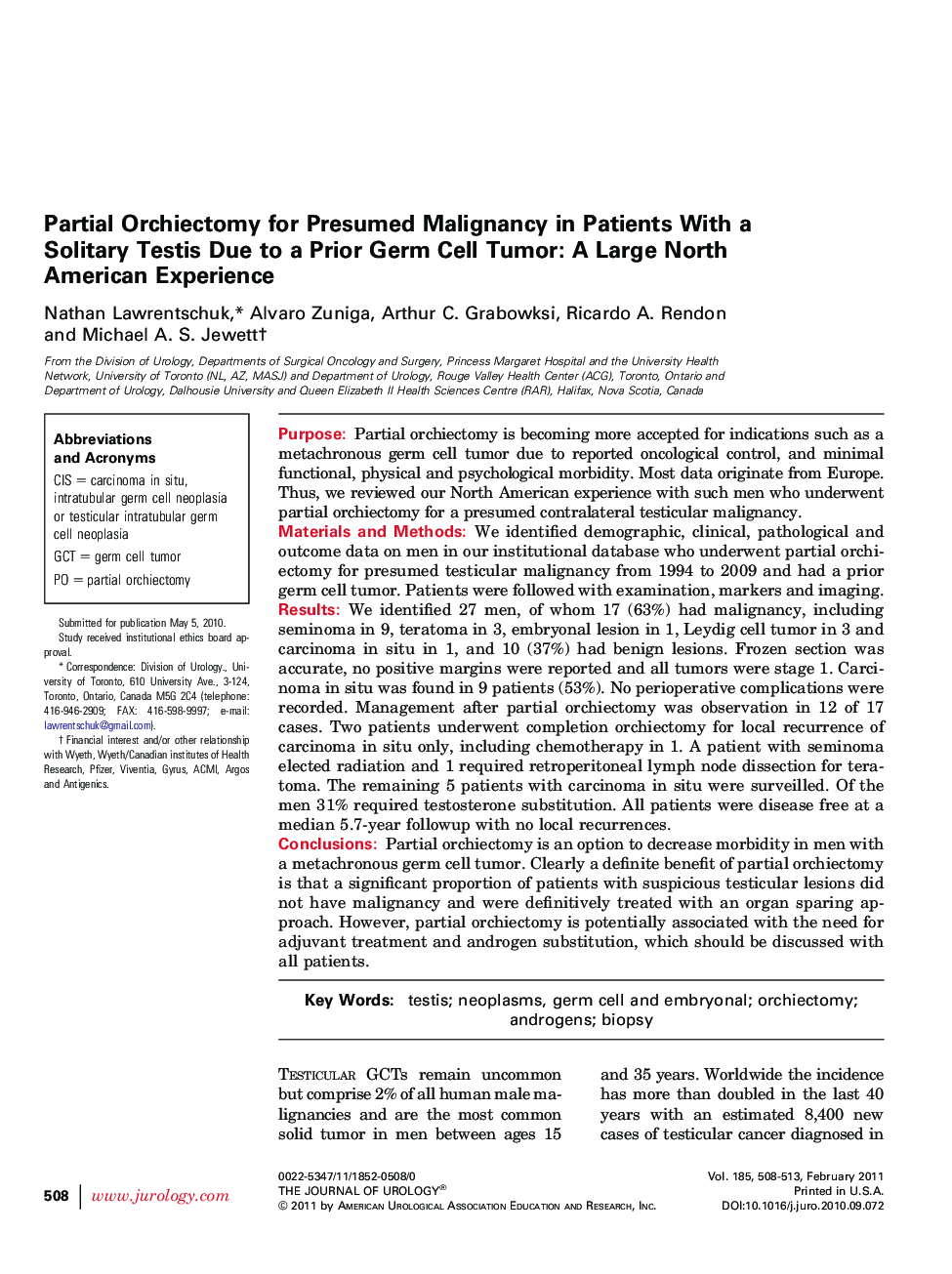| Article ID | Journal | Published Year | Pages | File Type |
|---|---|---|---|---|
| 3871229 | The Journal of Urology | 2011 | 6 Pages |
PurposePartial orchiectomy is becoming more accepted for indications such as a metachronous germ cell tumor due to reported oncological control, and minimal functional, physical and psychological morbidity. Most data originate from Europe. Thus, we reviewed our North American experience with such men who underwent partial orchiectomy for a presumed contralateral testicular malignancy.Materials and MethodsWe identified demographic, clinical, pathological and outcome data on men in our institutional database who underwent partial orchiectomy for presumed testicular malignancy from 1994 to 2009 and had a prior germ cell tumor. Patients were followed with examination, markers and imaging.ResultsWe identified 27 men, of whom 17 (63%) had malignancy, including seminoma in 9, teratoma in 3, embryonal lesion in 1, Leydig cell tumor in 3 and carcinoma in situ in 1, and 10 (37%) had benign lesions. Frozen section was accurate, no positive margins were reported and all tumors were stage 1. Carcinoma in situ was found in 9 patients (53%). No perioperative complications were recorded. Management after partial orchiectomy was observation in 12 of 17 cases. Two patients underwent completion orchiectomy for local recurrence of carcinoma in situ only, including chemotherapy in 1. A patient with seminoma elected radiation and 1 required retroperitoneal lymph node dissection for teratoma. The remaining 5 patients with carcinoma in situ were surveilled. Of the men 31% required testosterone substitution. All patients were disease free at a median 5.7-year followup with no local recurrences.ConclusionsPartial orchiectomy is an option to decrease morbidity in men with a metachronous germ cell tumor. Clearly a definite benefit of partial orchiectomy is that a significant proportion of patients with suspicious testicular lesions did not have malignancy and were definitively treated with an organ sparing approach. However, partial orchiectomy is potentially associated with the need for adjuvant treatment and androgen substitution, which should be discussed with all patients.
